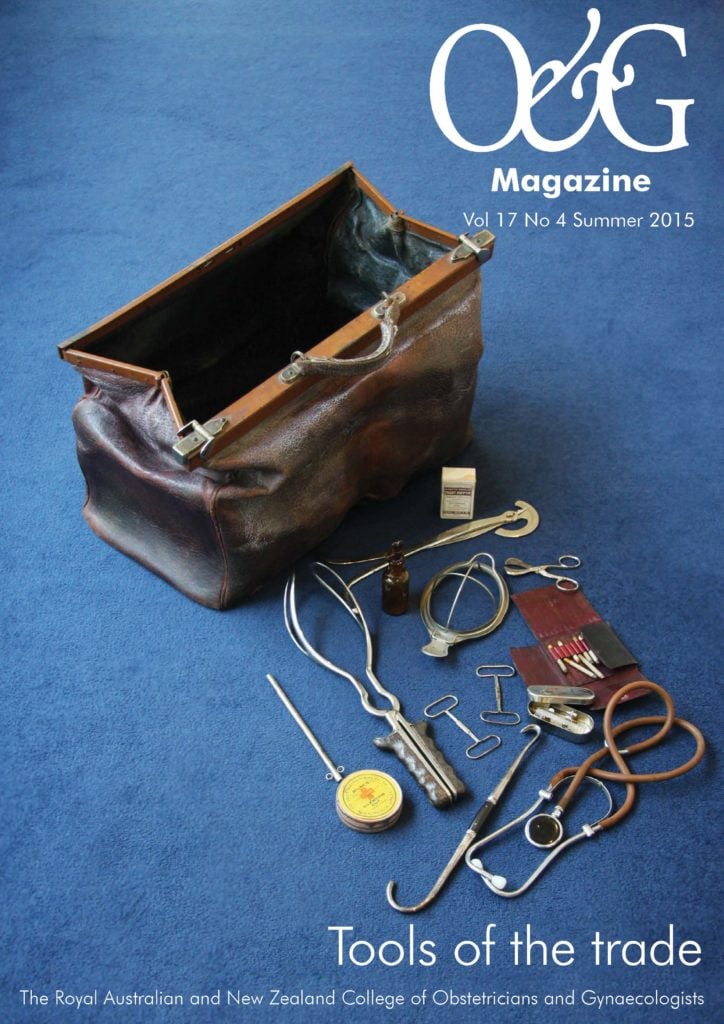The review of the Medical Benefits Schedule (MBS) under the chairmanship of Prof Bruce Robinson has now gained wide publicity. The colleges and professional associations have, in general, felt engaged with the process, but share many of the Australian Medical Association’s concerns regarding the possibility for harm if clinical input is not paramount.
Having attended a number of consultation sessions, the most poignant question came from a member of one the surgical associations: ‘What evidence will guide the MBS review?’ He, like so many others, is frustrated by both state and national guidelines produced by epidemiologists and academics (sometimes with relatively little clinical exposure). The evidence that should guide clinical practice (and therefore the MBS review) is the collective interpretation of evidence by clinicians active in the field. For most disciplines in Australia and New Zealand, the closest we have to clinician-guided practice are the statements and guidelines of the professional colleges and associations. It is obvious that these need to be of the highest standard, recommending specific clinical practice where evidence is strong, but recognising that diversity is reasonable where the evidence is less strong.
Recently, I was alarmed to hear a senior colleague (who should know better) note that a College statement had recommended a course of management even though there was ‘no evidence’. The collective interpretation of all available and relevant information by a group of clinical experts is, in fact, the best possible evidence. The presence or absence of a randomised clinical trial (RCT) may make a significant contribution to the information available, but does not constitute an end in itself. In fact, there are many examples where poor recommendations arise from an RCT interpreted by epidemiologists rather than clinicians active in the field. I despair for the damage done by those who incorrectly refer to sound clinical practices based on collective wisdom as having ‘no evidence’.
Obstetrics has been identified as one of the areas of practice targeted for early review. An Obstetrics Clinical Committee has been formed to advise the MBS Review Task Force. The committee has obstetricians (specialist, GP and MFM subspecialist), a midwife, an epidemiologist and extensive Department of Health support staff.
One issue identified for early review includes the possibility of a single item number for first trimester antenatal blood tests and the current low weighting given to management of a second trimester fetal loss. Marked interstate differences in use of the complex birth item number (16522) suggest that the descriptors around this item are variously interpreted. Descriptors that can be more consistently interpreted would seem desirable. The College would be pleased to collect input from Fellows regarding the MBS Review and has received surprisingly little input on such an important issue to date. Please email suggestions to: [email protected] .
FIGO
FIGO Vancouver 2015
The FIGO 2015 World Congress took place in Vancouver on 5–9 October and was attended by more than 6 000 specialists from around the world. This was the culmination of the three-year term of office for FIGO President, Prof Sir Sabaratnam Arulkumaran. Arul, as he is widely known, has made an outstanding contribution to global women’s health and will continue to play a leading role in key FIGO projects.
FIGO World Congress – Sydney 2021
The FIGO General Assembly was asked to vote on the choice of five bidding cities for the FIGO 2021 World Congress, to be hosted within the Asia-Oceania region. In a very competitive vote, Sydney was selected by the General Assembly ahead of Seoul, Yokohama, Singapore and Hyderabad. Congratulations are particularly due to Prof Bill Ledger and Prof Ian Fraser who led the Sydney bid, aided by strong support from Business Events Sydney. FIGO 2021 in Sydney will be the largest obstetrics and gynaecology event staged in Australia. The RCOG World Congress 2015, Joint RCOG/RANZCOG Event held this year in Brisbane showed that the College can successfully run a large international meeting, but FIGO 2021 is likely to present some special challenges. We look forward to the task ahead.
Annual Scientific Meetings
Provincial Fellows
This year, the Provincial Fellows Annual Scientific Meeting was held on the coast of New South Wales at Taree. Dr Phil Walkom had done a superb job of organising an excellent venue and program. Unfortunately, recent illness prevented him hosting the meeting itself and Dr Tony Geraghty stepped in as chair to guarantee a great meeting.
New Zealand Committee
The New Zealand Committee Annual Scientific Meeting was held this year in Wellington. This was another excellent program featuring both national and international speakers. Congratulations to the New Zealand office staff, the Organising Committee led by Dr Fali Langdana and, in particular, to Dr Phil Suisted who gave an outstanding welcome in the Maori language as part of the mihi whakatau (Welcome Ceremony).
O&G audit app
The College obtained funding from the Commonwealth Government, Rural Health and Continuing Education (RHCE), in December 2014, to develop an obstetrics and gynaecology-specific online audit tool to assist and encourage rural Fellows to participate in clinical audit as part of their CPD activities. The App is simple to use and allows Fellows to collect practice data and review outcomes in comparison to data from the Australian Council on Healthcare Standards (ACHS) Clinical Indicator Program. Three types of reports can be generated: obstetrics, gynaecology and number of procedures. The App is available on the following platforms iPhone, iPad and Android and is freely available through the AppStore and Google Play. While designed for Provincial Fellows, it is hoped that this App will also prove useful to the Fellowship in general. Thanks particularly to Jacqui Maloney, from College House, and A/Prof Ian Pettigrew and his subcommittee for their work in bringing this project to fruition.
ePortfolio
Very good progress has been made with the development of an ePortfolio for FRANZCOG Trainees. At the time of writing, it is anticipated that the logbook component of the ePortfolio will be available for the new training year in New Zealand, commencing 7 December 2015. Australian Trainees will begin using the eLogbook from 1 February 2016. Online versions of the three- and six-month training supervisor reports, along with other elements of the ePortfolio, will be progressively introduced over the next two years. While there may be some teething problems with moving more than 600 Trainees from paper-based to electronic documentation, there are many reasons why introduction of the ePortfolio has become a necessity. For example, the timely availability of Trainee procedural experience will enable better localisation of Trainees to the training sites where procedural experience is most available.
Women’s health
Choosing Wisely
RANZCOG is pleased to have recently joined, along with other colleges, the Choosing Wisely® campaign. Originating in the USA, participating organisations are asked to identify areas of practice where resource use is greater than the evidence might indicate to be warranted. A number of suggestions have been received by the College, including unnecessary screening at the first antenatal visit in the absence of risk factors (for example, vitamin D, ferritin, cytomegalovirus, parvovirus) and repeated first trimester ultrasounds in the absence of any complications. Gynaecological suggestions include CA-125 measurements in the absence of any symptoms or signs of gynaecological pathology. Input to these or other suggestions can be submitted to the College via email to: [email protected] .
National Cervical Screening Program
The introduction of the renewed National Cervical Screening Program (NCSP) in 2017 will see very significant changes in the national recommendations, including a transition to primary high-risk HPV screening and five yearly testing beginning at the age of 25 years. In parallel with its substantial investment in the NCSP, the government currently supports a comprehensive quality assurance program in cervical cytology and histopathology. With the renewed NCSP, it is anticipated that submission of clinical colposcopy data to the National Cervical Screening Register will be obligatory and participation in a colposcopy quality assurance program will be encouraged. The College is striving to ensure that any such data submission and quality assurance program will be as user-friendly as possible and any recommendation for minimum numbers remains within reach of the generalist.
Selection
In August, 258 eligible applications were considered for 80 available training positions in Australia. Approximately two-thirds of the eligible applicants were interviewed, which required a total of ten panels. Although hospital references were only used in the short-listing process (and not in the final selection score), they have proved a valuable resource in assessing the various elements of the selection process. It is extraordinary to realise that there is no gold standard of performance as a doctor against which to assess the various elements of a selection process: medical education, training assessments or examinations. The assessments by hospitals as to who they perceive as the better doctors represents at least one endpoint against which the various parameters of the selection process can be assessed. Analysis of the current year’s outcomes is likely to result in some refinements to the selection process for 2016. As ever, your constructive feedback is welcome.






Leave a Reply